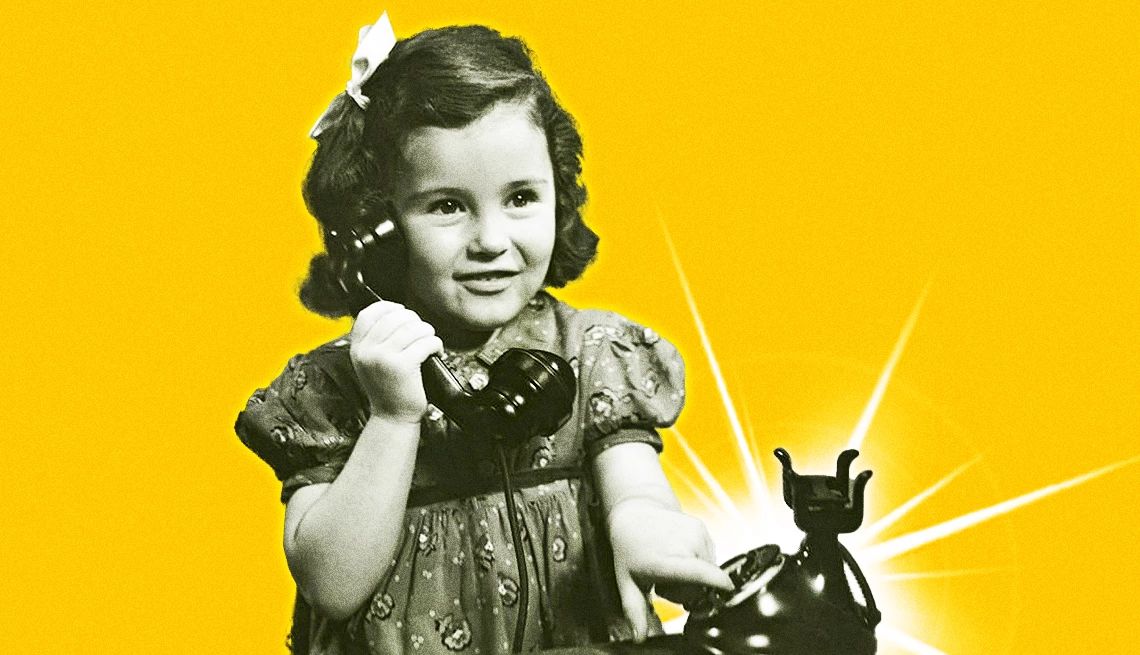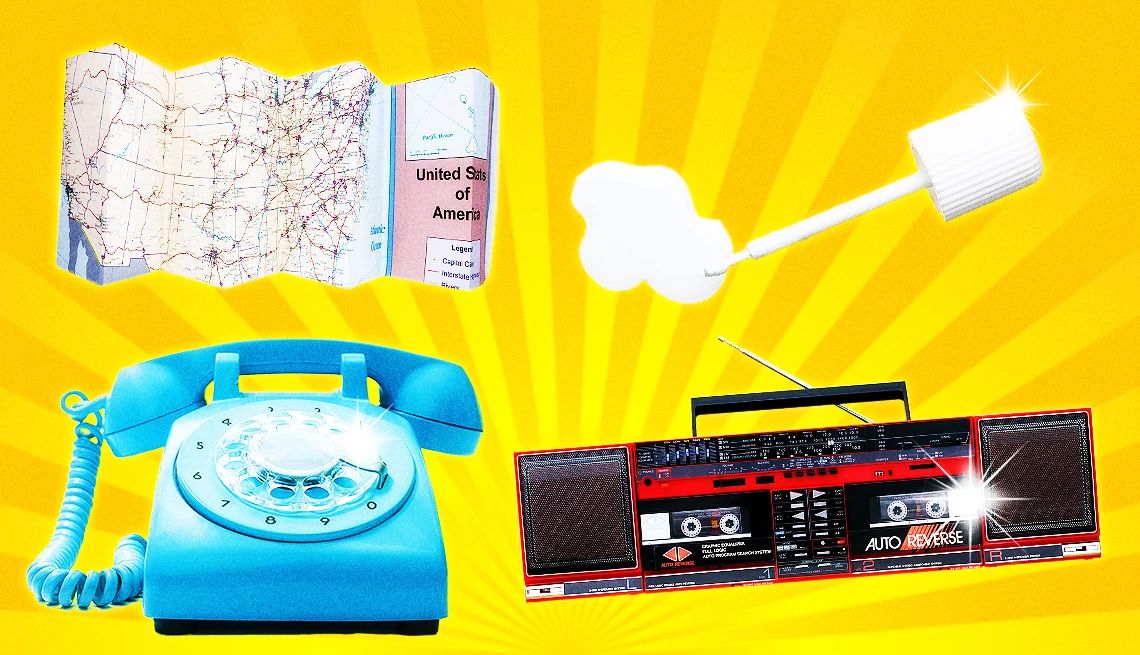AARP Hearing Center


Another piece of our shared past is about to ride off into the sunset: AOL announced it’s pulling the plug on its dial-up internet service for good in September. The last screechy modem handshake will soon fade into history, joining Blockbuster cards, paper maps and our metabolism in the Great Beyond.
For a generation, AOL’s dial-up was the training wheels of the internet. You knew how to dig the setup CD out of the junk mail pile, thread the phone line into the back of the computer and (most importantly) make sure nobody in the house picked up the phone and nuked your connection. And AOL’s not the only thing taking its final bow. We grew up with a whole arsenal of analog skills that at one point mattered like oxygen and today are about as useful as a pager in a Wi-Fi café.
So here’s a love letter to those skills. They may be obsolete, but darn it, we mastered them.
1. Using the card catalog
Back before “search” meant firing up Google, we hunted for books like we were cracking a safe. The wooden drawers, the smell of dust and glue, the librarian’s glare when you yanked a card out too far — it was all part of the ritual. You learned to read the strange code of numbers and letters like secret coordinates to treasure. If you needed to know how to change a tire, you tracked down a grease-stained manual buried somewhere in the 629.287 section.
Modern comparison: Today’s equivalent is typing “how to change a tire” into YouTube while sitting in a parking lot and trying not to cry.
2. Dialing a rotary phone without screwing up
Every call was a high-stakes mission. One wrong number, especially on the last digit, and it was back to zero, literally. The finger drag, the satisfying kachunk, the slow, mechanical return of the dial — it was tactile glory, a tiny workout for your index finger and a lesson in patience.
Modern comparison: The smartphone “butt dial” is our sad digital heir, only now we accidentally call people we’ve been avoiding since high school.


3. Folding a map
Paper maps were equal parts navigation tool and slapstick prop. You’d unfold one in the car and blot out half the windshield, then spend 20 minutes trying to refold it into something smaller than a bedsheet. Get it right and you felt like you’d solved a Rubik’s Cube blindfolded; hand it to the passenger and they’d wreck your masterpiece in seconds. Worse, the thing was usually outdated, with streets that had been renamed, restaurants that had closed five years earlier, and gas stations listed despite being converted into Starbucks drive-thrus.
Modern comparison: GPS doesn’t fold but it will still ruin your trip, usually by calmly instructing you to “turn left” into a lake.
4. Rewinding a cassette with a pencil
When the tape in a cassette began to unspool, you didn’t panic. You grabbed the nearest No. 2 pencil, stuck it into the reel and cranked like a safecracker in a heist movie. It was delicate, meditative work that felt like performing surgery. And when you were done, you’d pop the cassette back in and pray the tape hadn’t been stretched beyond salvation.
Modern comparison: Now we troubleshoot streaming glitches by turning the Wi-Fi off and on, then posting about it on Facebook like it’s a national emergency.
5. Programming a VCR to record something days ahead
We were basically time travelers. You had to set the channel, start time, stop time and date, all without messing up one digit. One wrong move and you’d end up recording six hours of Matlock reruns instead of Miami Vice. It was like defusing a bomb, and the stakes felt enormous. Because if you failed, you missed your favorite show and had to suffer through spoilers from friends.
Modern comparison: Streaming services have auto-play. Which is why you’ve been “accidentally” watching Law & Order for 14 hours straight.





































































You Might Also Like
Witnesses to History: Ordinary Lives, Big Events
Ordinary people recall living through historic eventsThe Document That Made Us Americans
A former chief archivist of the United States talks about the Declaration of Independence
How the Post Office Put Its Stamp On the Nation
As the Postal Service turns 250, we look at its history